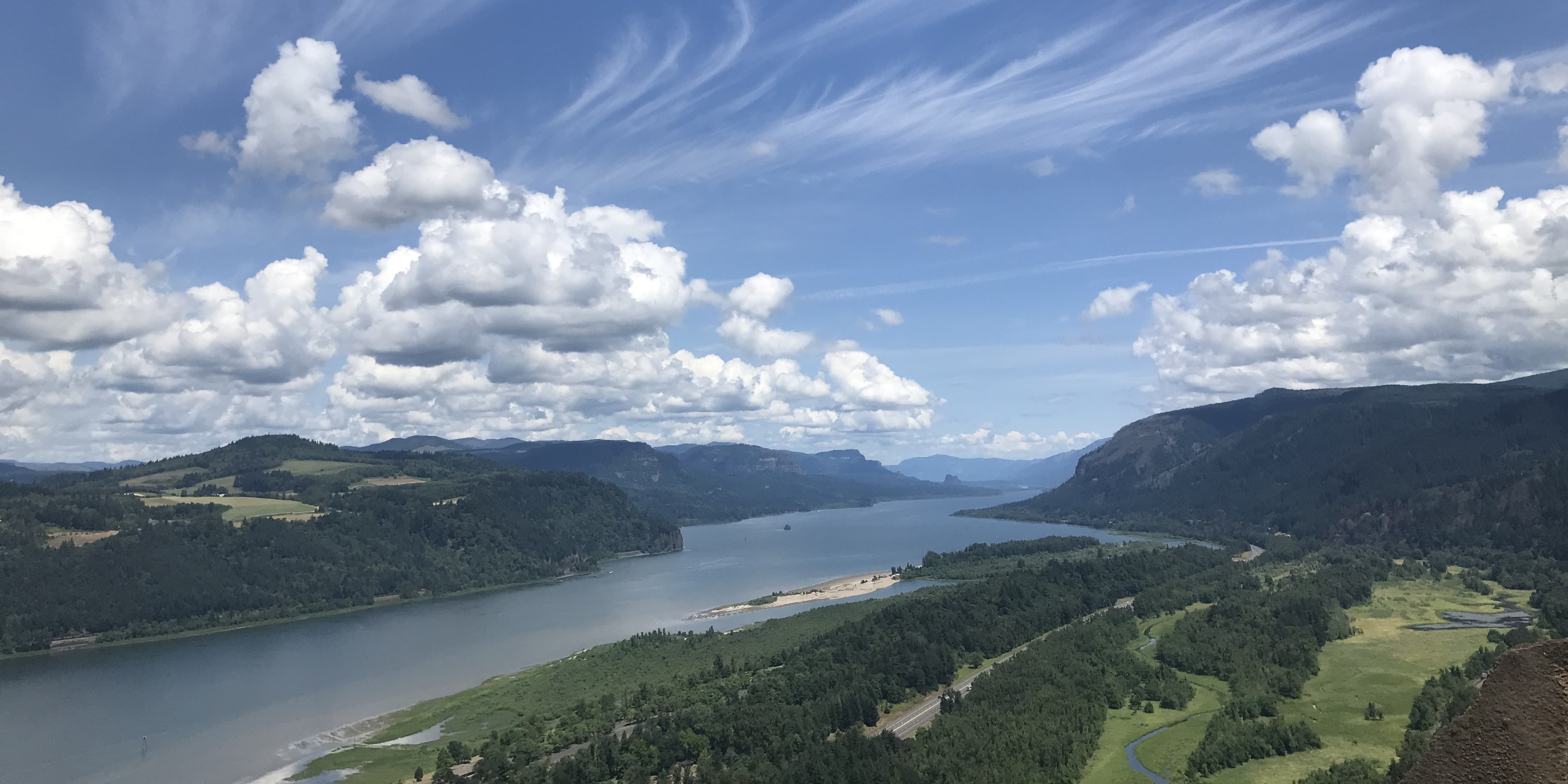The Columbia River Gorge is a natural scenic treasure and is protected as a federally designated National Scenic Area. In 2017, the Columbia River Gorge Commission and the U.S. Forest Service began review of the Gorge Management Plan, considering input from stakeholders and the public.
On Oct. 13, 2020, the Gorge Commission voted to adopt the revised Management Plan on a 9-2 vote. The revised plan includes climate policies, equity policies, strong urban area boundary policies, wetlands protections, doubled stream buffer size for salmon, improved scenic protection, limits on new dwellings in Forest zones, improved farm dwelling standards, stronger mining restrictions, and much more. The Revised Management Plan is not perfect, but it is substantially improved. These are the most sweeping policy changes since 1991 when the original Management Plan was adopted.
Background
In addition to being a National Scenic Area, the Gorge is also home to 13 communities, or urban areas, where economic development is intended to occur.When enacted in 1986, the Columbia River Gorge National Scenic Area Act required the development of a Management Plan that ensures the protection and enhancement of scenic, natural, cultural, and recreation resources. The Management Plan also must protect agricultural lands, forest lands, and open spaces. The original Management Plan was adopted in 1991 (and until the 2020 review had been reviewed only once in 25 years), although the law requires it to be reviewed at least once every ten years. Prior to the 2020 revision, most of the resource protection provisions of the plan were based on inventories, science, and policies that are more than 25 years old. View the current Management Plan as approved in 2020.
Many of the issues raised by the public during the previous review of the plan were not addressed in subsequent years, and development on sensitive lands within the National Scenic Area continued to march forward under these outdated guidelines.
With the new updates to the Management Plan, the scenic, cultural, recreation, and natural resources of the Gorge will have greater protections and Gorge residents are afforded improved opportunities to enhance these important values. At the same time, the work is not complete. Now, the Gorge counties and the Gorge Commission must adopt new land use ordinances to implement the new Management Plan. Friends is working tirelessly to make sure that the land use ordinances are compliant with the much improved Management Plan.

Subscribe & Stay Updated
Get updates on actions you can take to help protect the Gorge.
Q&A: Woodland Land Use Designations 101
Learn about the importance of carefully crafted land use designations essential to managing and protecting the Gorge's resources.
Learn More
Sweeping Changes Approved to Columbia River Gorge Management
New policies address climate change, salmon streams, wetlands, and limit urban expansion.

